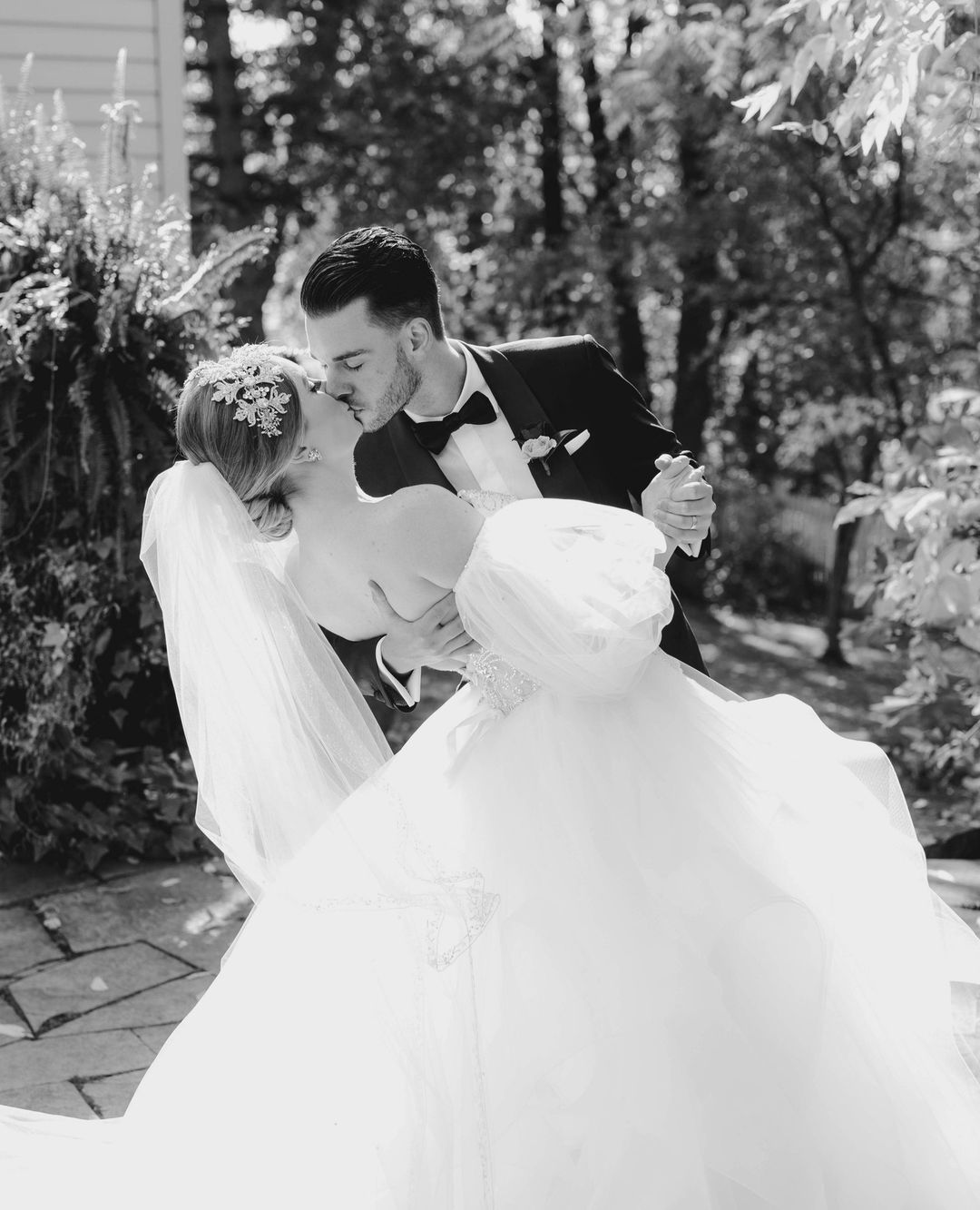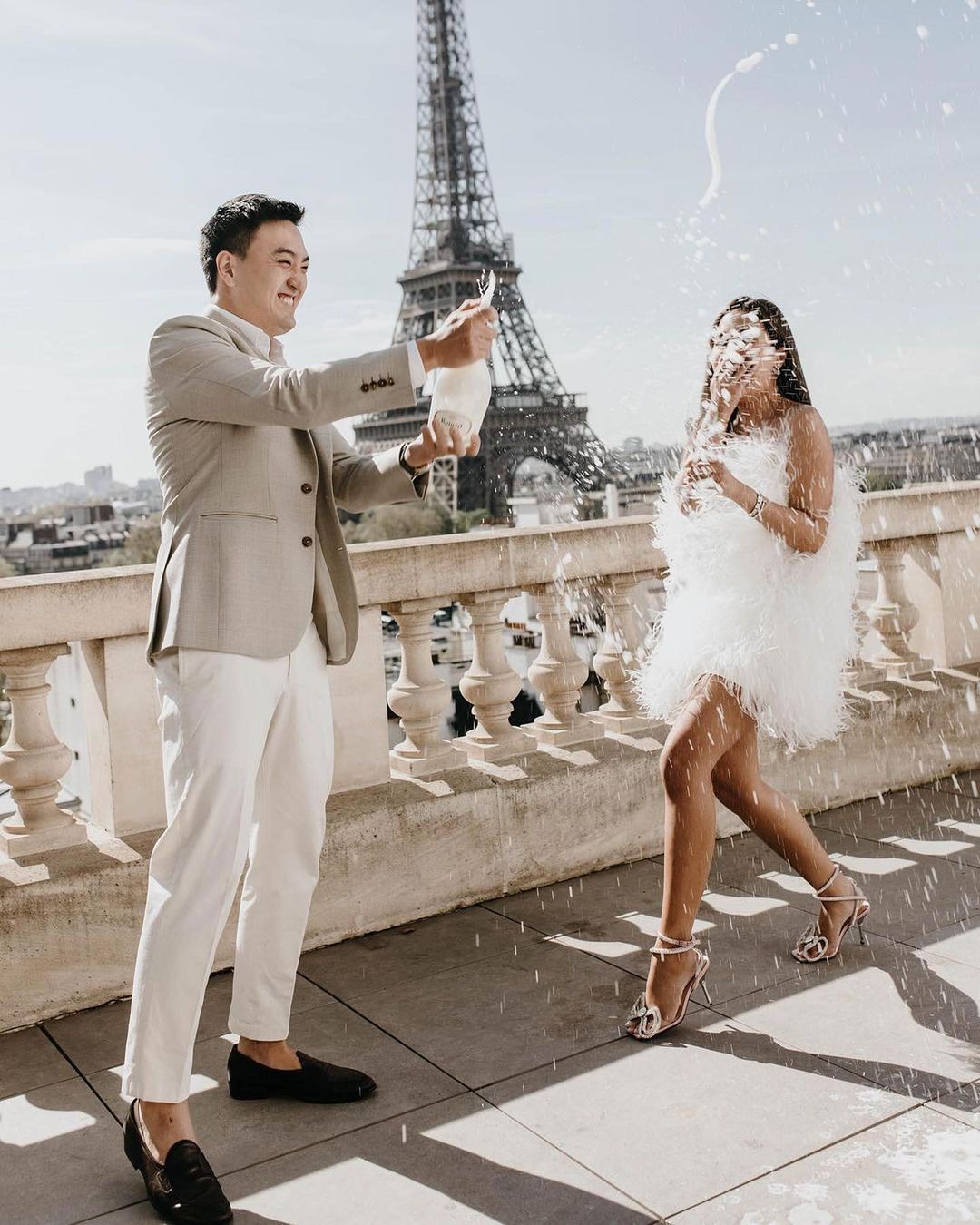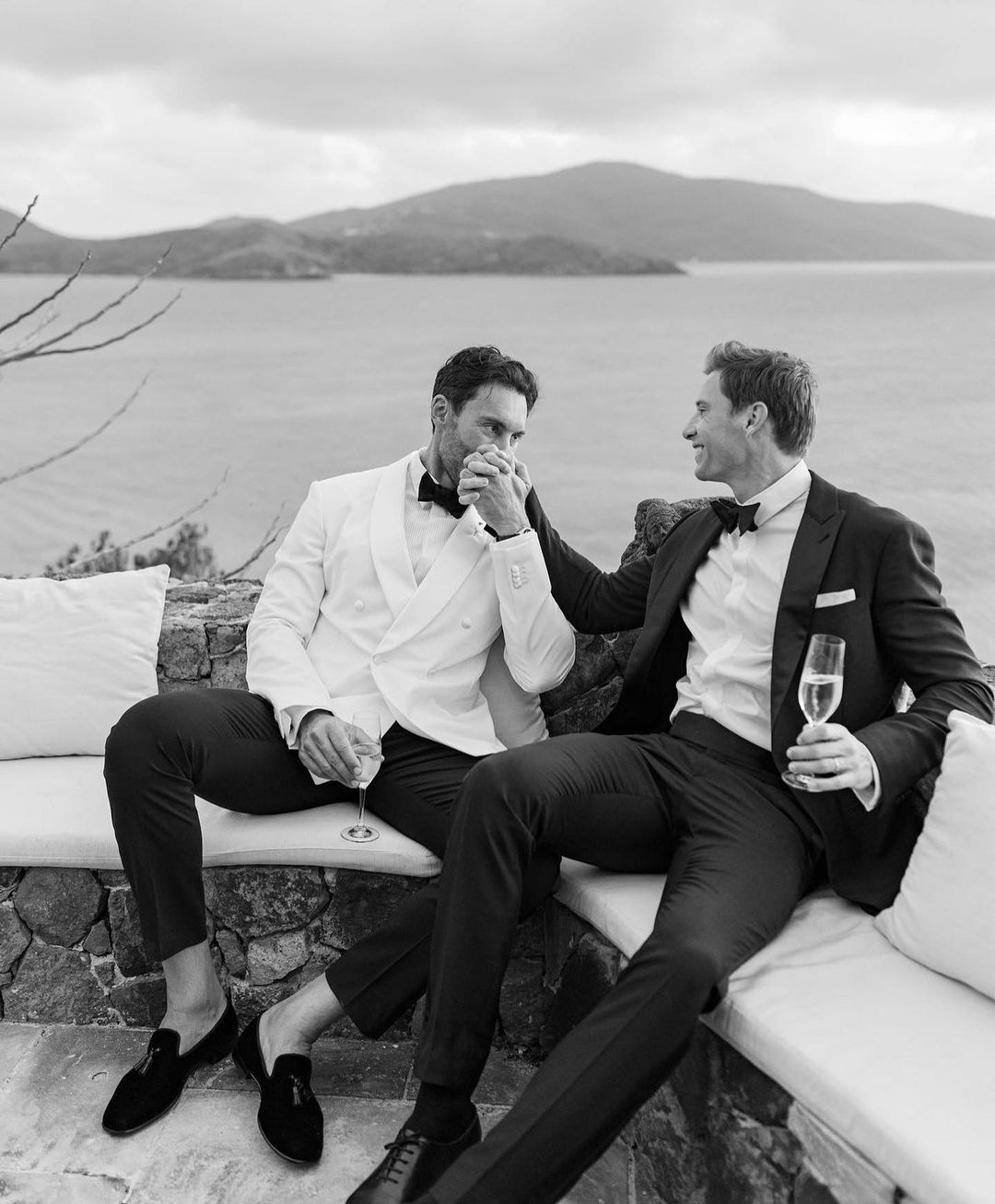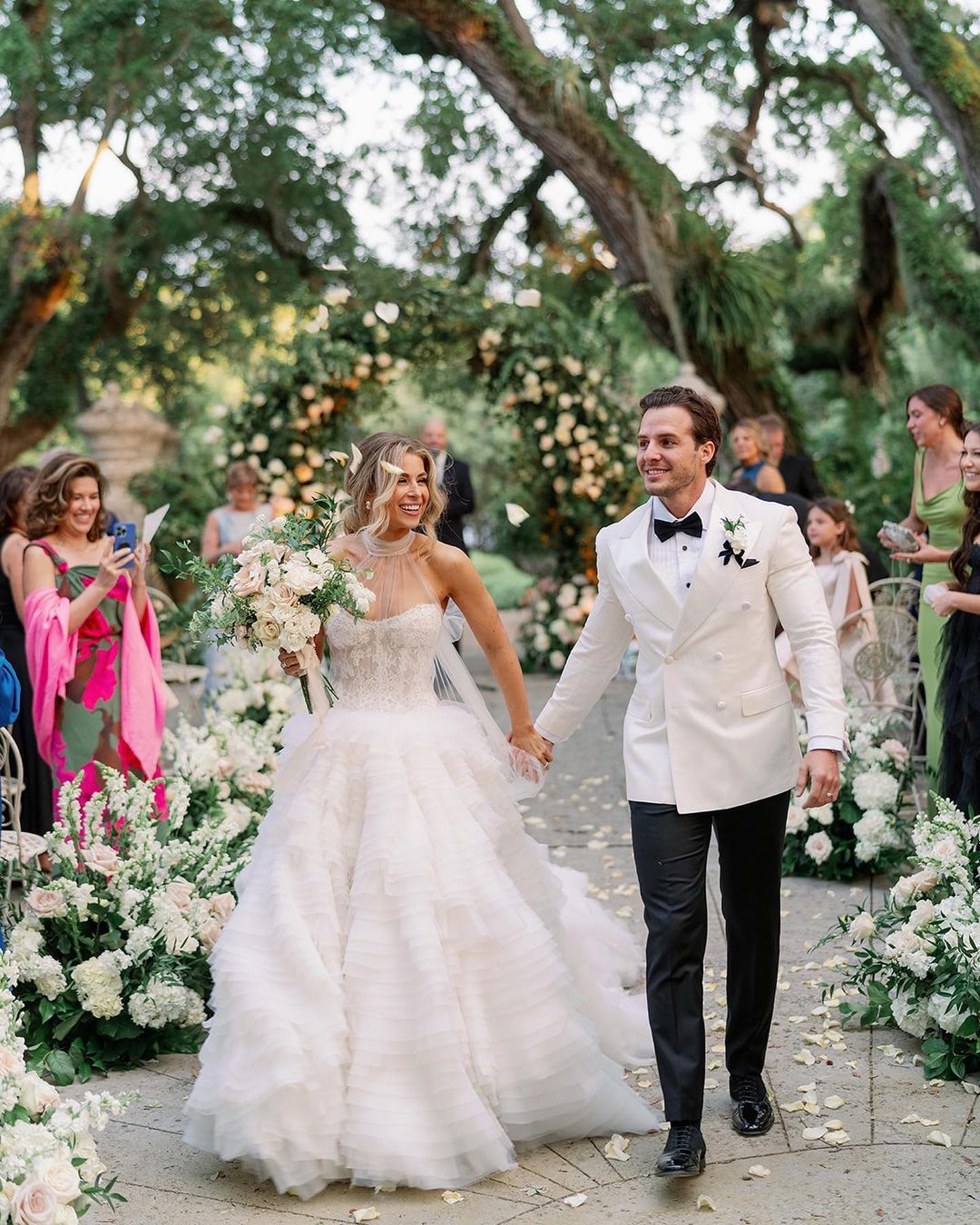Nigerian Wedding Traditions and Customs
- Author: Natali Grace Levine
- Reading time: 8 min 4 sec
- Publication date: 05/24/2023
- Updated: 01/24/2025
- Traditional Nigerian Wedding Traditions You Probably Haven't Heard Of
- Love, Superstitions, and All That Jazz: Nigerian Wedding Customs and Beliefs
- Traditional Nigerian Wedding Clothing
- The Traditional Nigerian Wedding Ceremony
- From A to Z: Your Nigerian Traditional Wedding Checklist
- How Much Does a Traditional Nigerian Wedding Cost?
Are you prepared to explore the colorful realm of Nigerian customs and traditions? Believe us, an enjoyable experience awaits. As a nation with a rich tapestry of cultural diversity, Nigeria boasts more than 250 distinct ethnic communities, each boasting its own exclusive nuptial customs. But today, we're going to focus on some of the most popular ones. Oh, honey, this journey is going to be colorful, lively, and downright fascinating!

Traditional Nigerian Wedding Traditions You Probably Haven't Heard Of
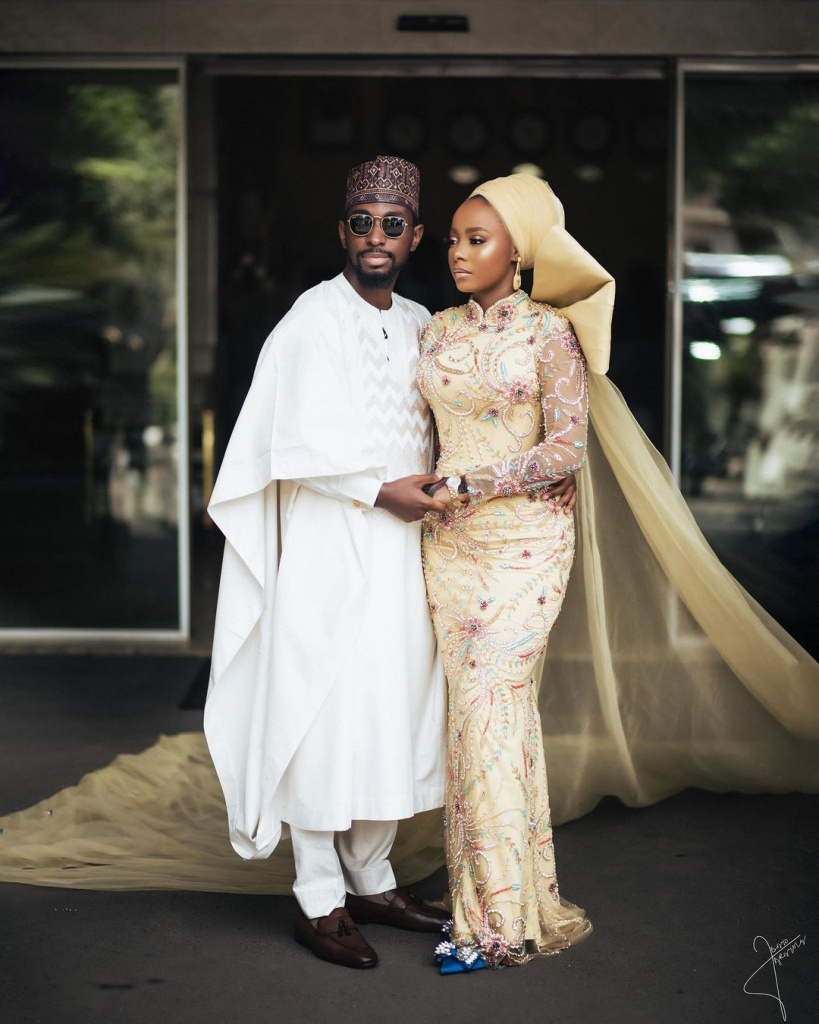
There are plenty of traditional Nigerian marriage customs that can blow your mind. One such tradition is the "Eru Iyawo," which means "gifts of the bride" in Yoruba. In this custom, the groom's family sends a beautiful array of gifts to the bride's family to symbolize the unity of the two families. Talk about a delightful way to start a marriage, right?
Another lesser-known tradition is the "Igba Nkwu" ceremony among the Igbo people. It involves the bride searching for her groom among the guests by offering him a cup of palm wine. When she finds him, they both drink from the cup, signifying their union. How sweet is that?
The Efik people have their own unique tradition called "Mbobo." In this ritual, the bride is secluded and pampered for weeks leading up to the wedding. She's showered with gifts, and her skin is massaged with oils to make her glow on her big day.
The Tiv people celebrate their traditional Nigerian weddings with the "Kwase Ku" ceremony. The groom's family visits the bride's family with a pot of wine, and both families negotiate the bride price. After the negotiations, the couple is united in a traditional dance, and everyone joins in the celebration.
Within the Kalabari community, the essential "Iya" ritual occurs before the wedding. The bride's relatives send an inventory of items, such as food, beverages, and apparel, to the groom's family. By presenting these items, the groom's family demonstrates their commitment to supporting the bride.
The Nupe tribe has a distinct custom called "Kuchiko." The groom and his companions participate in a pretend battle near the bride's residence. This performance showcases the groom's resilience and dedication to safeguarding his bride.
In the Ibibio tradition, the "Nkuho" ritual is a vital component of matrimonial celebrations. The bride's family conducts a thorough investigation into the groom's family's background to ensure they possess upstanding character. This verification is necessary for the marriage to advance.
Among the Idoma people, the "Ai Ije" event takes place prior to the wedding, during which the bride visits the groom's home to complete domestic tasks. This practice allows the groom's family to evaluate the bride's abilities in maintaining a household.
In the Ijaw custom, the "Ikeni" ritual involves the groom's family offering a sizable pot of soup to the bride's family. This gesture symbolizes the groom's capacity to cater to his bride's needs.
The Ogoni people celebrate their weddings with the "Marital Dance" or "Nkumbara." During this dance, the groom carries his bride on his back and dances around the village to showcase their love and happiness.
In Isoko culture, the "Udi Efe" ceremony involves the bride's family presenting the groom with a yam tuber, which he must peel and cook to prove his ability to care for his future family.
Love, Superstitions, and All That Jazz: Nigerian Wedding Customs and Beliefs
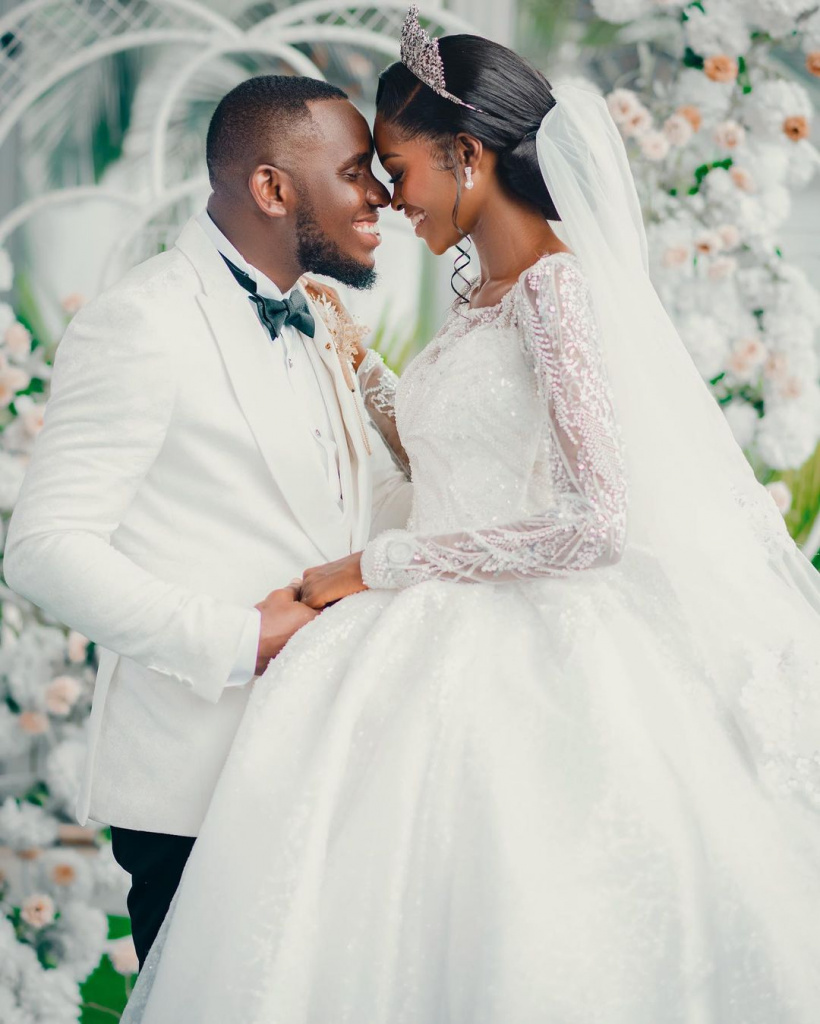
Nigerian weddings are not just about glitz and glamour; they are deeply rooted in customs and beliefs that have been passed down through generations. For instance, in the Igbo culture, there's a belief that rain on the wedding day is a sign of blessings and prosperity for the couple. So, if you're attending a Nigerian wedding, don't forget to pack your dancing shoes, and perhaps an umbrella, just in case!
In Yoruba weddings, the bride and groom taste four different flavors during the ceremony: sweet, sour, bitter, and spicy. This represents the different experiences they'll face together in their married life. What a beautiful way to start a lifelong journey, right?
An intriguing tradition among the Igbo community is the "door knocking" ceremony. During this event, the groom approaches the bride's family to request their daughter's hand in marriage. He presents kola nuts and palm wine as tokens of goodwill, and if the family accepts these gifts, they open the door, indicating their consent.
In the Hausa tradition, the "Kamu" ritual is an entertaining occasion in which the bride's friends engage in playful bargaining with the groom's friends to "free" the bride. The groom is required to pay a symbolic sum, and once this is agreed upon, the bride is ultimately "liberated" for the wedding.
The Igala tribe has a distinctive custom called "Igbegwu." Before the wedding, the bride's family stages a faux kidnapping of the bride. The groom and his companions must then "save" her, showcasing their dedication to safeguarding her throughout their union.
In Kanuri weddings, the "Koshe Zance" ceremony takes place before the main wedding event. The groom is required to demonstrate his riding skills on a horse, showcasing his strength and bravery to the bride's family.
The Ebira people have a tradition called "Evo." The bride's family presents the groom with several bowls of soup, and he must choose the correct one, prepared by his bride-to-be, to symbolize their connection and compatibility.
Among the Gbagyi people, the "Kwaghir" ceremony is a lively pre-wedding event. The bride and groom, along with their families, perform traditional dances, and the groom's family presents gifts to the bride's family, symbolizing their intention to care for the bride.
In Itsekiri culture, the "Igbeyawo" ceremony involves the groom and his family visiting the bride's family with gifts, including kola nuts and palm wine. The bride's family shares the kola nuts, which are considered a symbol of unity, among the guests to signify their acceptance of the marriage.
Among the Bini people, the "Igue" ceremony involves the couple receiving blessings from their families and the community. Elders place their hands on the couple's heads, transferring their wisdom and blessings for a successful marriage.
Traditional Nigerian Wedding Clothing
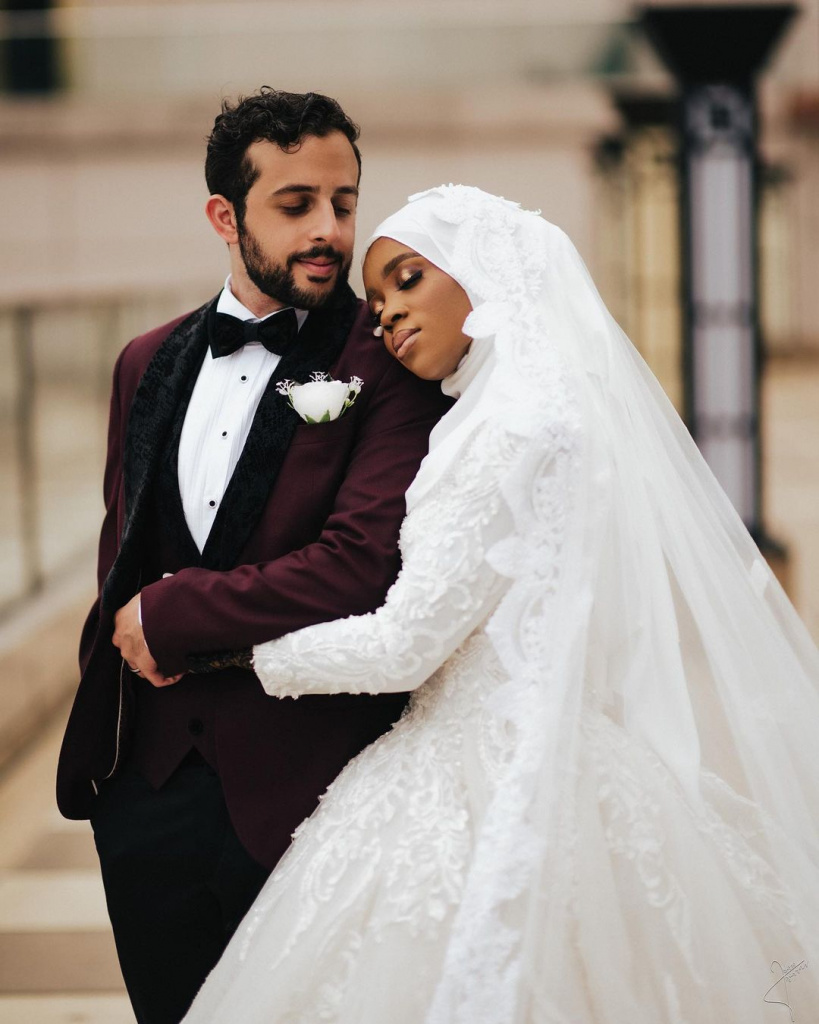
Traditional Nigerian wedding attire is a spectacular sight to behold, with brides and grooms dressed in vibrant colors and intricate patterns. The most common outfits include the "Aso Oke" (a hand-woven fabric) and "Ankara" (a colorful, patterned fabric) for the Yoruba, the "George" fabric for the Igbo, and the "Babanriga" (a flowing gown) for the Hausa. Trust, us, folks, you won't be able to take your eyes off these stunning ensembles!
Brides often wear elaborate headpieces, called "gele," which are beautifully tied head wraps that add a regal touch to their outfits. To complete the look, brides accessorize with intricate beadwork, such as necklaces, earrings, and bracelets. Conversely, grooms typically don a coordinating hat known as a "fila" and may even carry a walking stick as an emblem of power.
Bridesmaids and groomsmen in Nigerian weddings also serve a notable function, dressed in garments that accentuate the bride and groom's outfits. The vivid hues and designs sported by the wedding party contribute to eye-catching group pictures, truly reflecting Nigeria's multifaceted fashion.
Besides traditional apparel, Nigerian couples frequently adopt contemporary Western styles, including white bridal gowns and bespoke suits. This amalgamation of cultures imparts a distinctive flair to Nigerian weddings, forging an exquisite blend of the past and present.

The Traditional Nigerian Wedding Ceremony
Now, let's talk about the main event - the Nigeria traditional wedding ceremony. It usually kicks off with the introduction, where both families come together to meet and greet. Next up is the engagement, where the groom's family pays the bride's family a symbolic dowry. Finally, the grand finale— the celebration, which is an explosion of colors, music, and dance, as the couple officially becomes one. So, if you're a sucker for a good love story, Nigerian weddings are right up your alley.
During the ceremony, there are often multiple rituals that showcase the couple's commitment to each other. For example, in Yoruba weddings, the groom places his hands on the bride's shoulders while they kneel before the officiant. This gesture symbolizes the groom's protection and support for his bride.
In some Nigerian cultures, the bride's family may playfully "hide" the bride, requiring the groom to search for her before the ceremony can begin. This tradition tests the groom's dedication and perseverance in finding his beloved.
Music and dance are essential components of a Nigerian wedding ceremony, with traditional drummers, singers, and dancers setting the atmosphere for the event. Guests are encouraged to join in the dancing, making the celebration a lively and unforgettable experience.
From A to Z: Your Nigerian Traditional Wedding Checklist
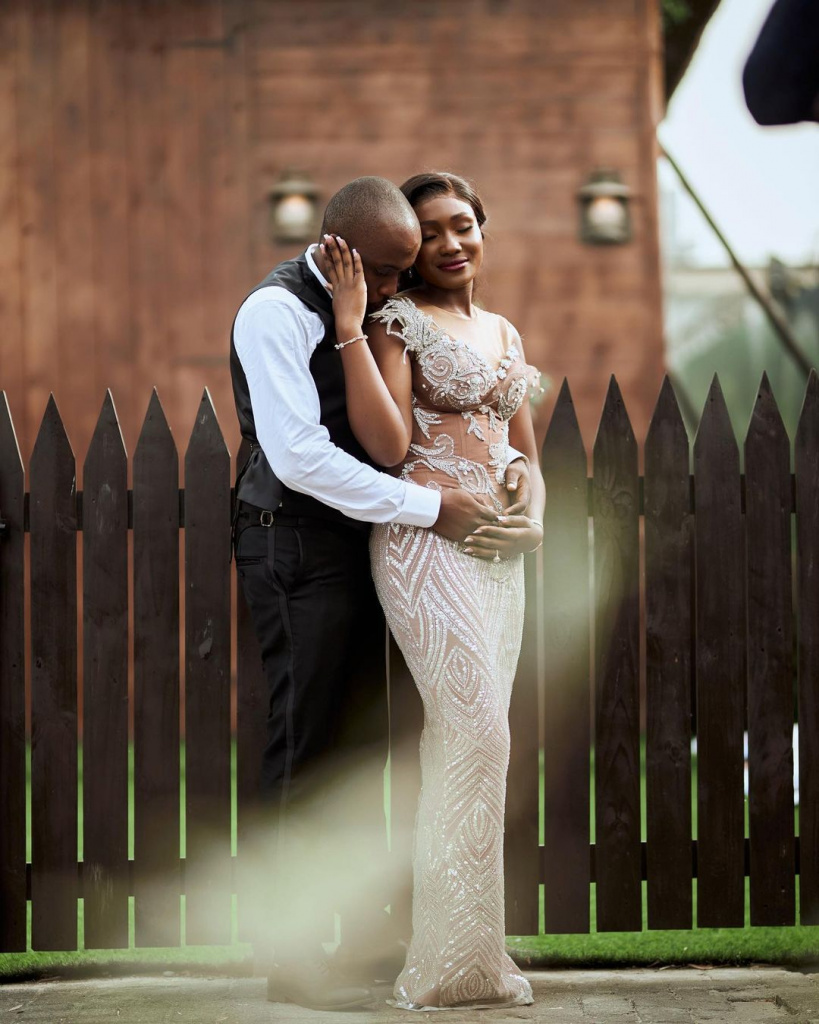
Planning a Nigerian traditional wedding? Don't sweat it! We've got you covered with a comprehensive checklist!
- Engagement List: Obtain the engagement list from the bride's family, which includes items required by the groom's family to present during the engagement ceremony or dowry payment.
- Dowry Negotiation: Discuss and finalize the dowry or bride price with the bride's family, respecting the cultural norms and practices of both families.
- Traditional Outfits: Select and order traditional outfits for the bride, groom, bridesmaids, groomsmen, and family members, ensuring that they align with your cultural requirements and preferences.
- Wedding Invitation: Design and send out traditional wedding invitations to family, friends, and other guests, including essential information such as date, time, venue, and dress code.
- Venue: Choose a suitable venue for the traditional wedding ceremony, considering factors such as size, location, and budget.
- Catering: Arrange for catering services, ensuring that the menu includes a variety of traditional Nigerian dishes and beverages.
- Cake: Order a traditional wedding cake that reflects the culture and style of the couple.
- Decorations: Plan the decorations for the venue, incorporating cultural elements, colors, and symbols that represent the couple's heritage.
- Photography & Videography: Hire professional photographers and videographers to capture the memorable moments of your traditional Nigerian wedding.
- Entertainment: Organize traditional music, dance, and other entertainment options for the wedding ceremony, including live bands, DJs, or cultural performers.
- Traditional Rites: Consult with both families to ensure that all necessary traditional rites and customs are included in the wedding ceremony.
- Gifts & Favors: Prepare gifts for the bride's family and wedding favors for guests, reflecting the couple's culture and personal style.
- Transportation: Arrange transportation for the couple, family members, and guests, ensuring that everyone can easily reach the wedding venue.
- Accommodation: If necessary, arrange accommodation for out-of-town guests attending the traditional wedding ceremony.
- Wedding Planner: Consider hiring a wedding planner who specializes in Nigerian traditional weddings to help coordinate the event and ensure that all cultural requirements are met.
How Much Does a Traditional Nigerian Wedding Cost?
Now, here comes the burning question: how much does a traditional Nigerian wedding cost? The response, dear reader, relies on several factors, such as the couple's financial means, guest count, and the opulence of the festivities. A humble wedding could be as affordable as a few hundred thousand Naira, while an extravagant event may require several million Naira. Regardless of the budget, Nigerian weddings consistently serve as a heartening commemoration of affection and unity.
Bear in mind that expenses can fluctuate based on the region, specific cultural demands, and the couple's preferences. To reduce costs, prioritize the wedding's most crucial aspects and devise inventive methods to incorporate traditional components without incurring excessive expenses. For example, you could opt for a more intimate guest list or select a more cost-effective venue that still offers an ideal backdrop for your celebration.
Another cost-saving suggestion is to collaborate with local vendors who are familiar with the cultural subtleties of Nigerian weddings and can provide competitive rates. For instance, obtain your wedding attire from local tailors and textile stores, or employ a local caterer capable of crafting a delectable array of traditional Nigerian dishes without the steep price.
Regardless of the ultimate expense, it is vital to recall that a Nigerian wedding is a once-in-a-lifetime occasion that unites family, friends, and the community in celebrating the love and dedication between the bride and groom. Concentrating on unity, love, and togetherness, your Nigerian wedding will undoubtedly be a beautiful and unforgettable experience, independent of the cost.










